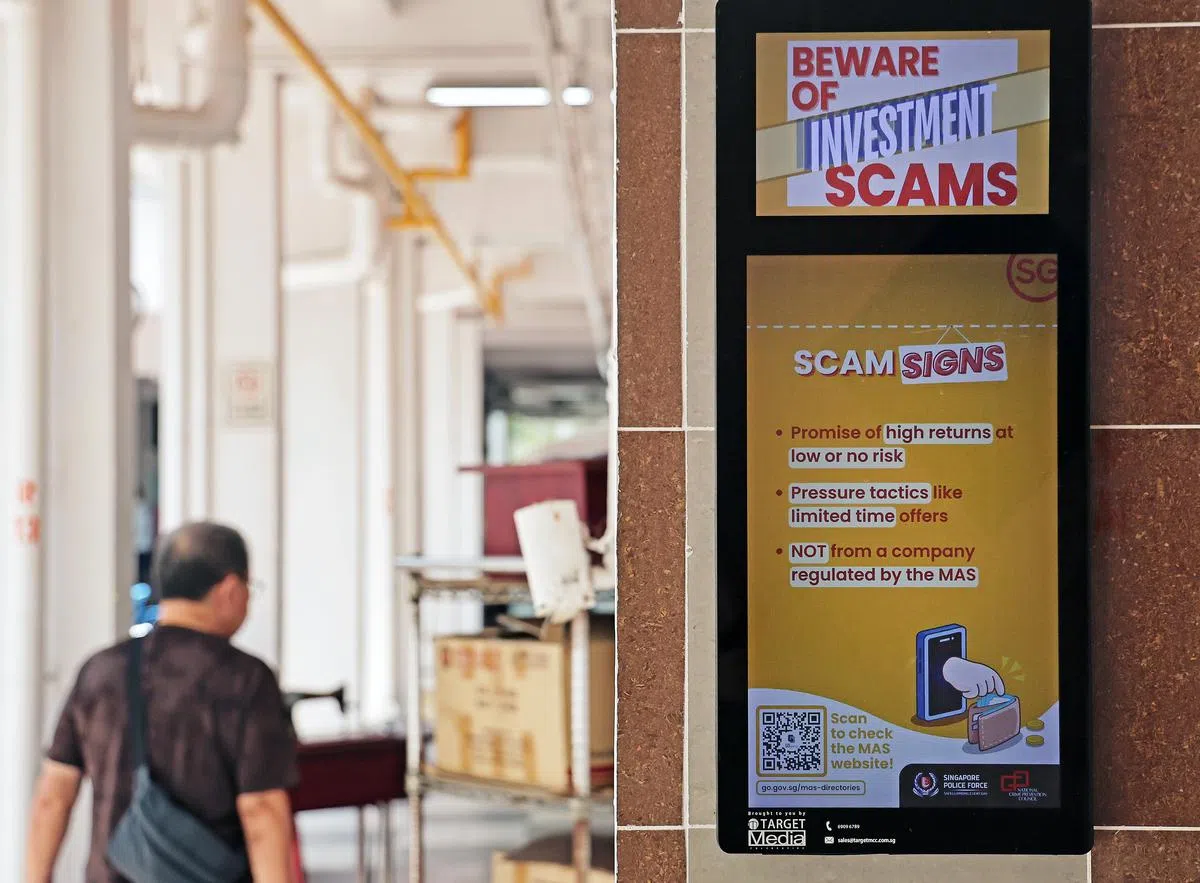Rules require Fi’s and telcos to mitigate phishing scams, sets expectations of payouts for affected victims
FINANCIAL institutions (FIs) will now be required to implement real-time fraud surveillance on unauthorised transactions from phishing scams, under the shared responsibility framework (SRF).
This in response to feedback received on a consultation paper on the framework, said the Monetary Authority of Singapore (MAS) and the Infocomm Media Development Authority of Singapore (IMDA) on Thursday (Oct 24).
The framework – which assigns duties to FIs and telecommunication companies to mitigate phishing scams, and sets expectations of payouts to affected scam victims – will be implemented on Dec 16, 2024.
MAS and IMDA said they will adopt a key area of feedback, and introduce an additional duty on FIs that requires real-time fraud surveillance directed at detecting unauthorised transactions in a phishing scam that result in account draining.
This means that if a customer’s account is being rapidly drained of a material sum to scammers, FIs must either block the transaction until it is able to reach the customer for positive confirmation, or send a notification to the customer and block or hold the transaction for 24 hours.
Originally under the SRF, FIs were required to impose a 12-hour cooling off period upon activating a digital security token, and provide real-time notification alerts when activating digital security tokens and conducting high-risk activities.
BT in your inbox
Start and end each day with the latest news stories and analyses delivered straight to your inbox.
They should also provide real-time outgoing transaction notification alerts, and have a 24/7 reporting channel and kill switches for customers to report and block unauthorised access to their accounts.
As the fraud surveillance was not within the four FI duties originally consulted on, MAS will allow a six-month transition period from the date of the SRF’s implementation for FIs to be held to the duty.
Ho Hern Shin, deputy managing director for financial supervision at MAS, noted that the additional fraud surveillance duty may result in more convenience for some retail consumers when conducting large value transactions.




